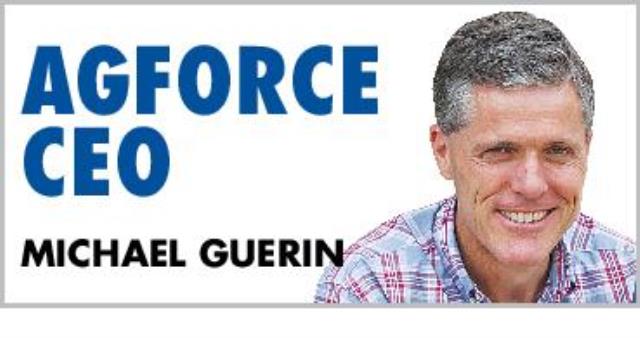Our battle to protect the Great Artesian Basin has been the most consequential campaign chapter in AgForce’s 25 year history.
But reality and common sense have not prevailed, and despite some wins, the campaign goes on.
In February this year, AgForce uncovered the true extent of the Federal Government’s deeply flawed assessment of the mining giant Glencore’s proposal to pump industrial waste into the Great Artesian Basin (GAB) through what is called Carbon Capture and Storage (CCS).
That assessment in February 2022, took a total of three weeks, while many of us were trying to get a much-needed break before the school year began.
The Federal Government waived Glencore’s application through, having considered a total of five documents, three of which were only one page long.
In response, AgForce lifted its engagement and advocacy – leaving no stone unturned including the consideration of legal action to protect the GAB.
We were inundated with concerns from primary producers around the state about the ramifications of Glencore’s proposal if it proceeded, and felt we had to respond to resolve this significant water security issue.
As a result of AgForce’s efforts, the Queensland Government brought in legislation imposing a permanent ban on Carbon Capture and Storage in the Great Artesian Basin. The terms of the subsequent Senate Inquiry into the implications of Glencore’s proposal also mirrored the concerns of AgForce.
This has been a David and Goliath battle but the potentially devastating fall-out for our industry and our national food security cannot be over-estimated.
This was made clear in an article in Renew Economy last week, that identified literally billions of dollars the Federal Government directed into CCS technology, and then having little regard for proper process when the Glencore proposal was submitted for its consideration.
This tells a wider story that should be deeply concerning to every Australian.
And further to this, the current Federal Government is proposing to throw at least another $100m of our taxpayer money at this CCS technology.
AgForce member Ken Cameron, put this conundrum eloquently two weeks ago on ABC Radio when he said “it beggars belief that the government would even consider an activity that in all likelihood would end up adding heavy metals to our food supply”.
In mid-June 2024 (coincidently the same day AgForce filed its Outline of Argument for the Federal Court case it commenced in May 2024) the State Government introduced its legislation placing a moratorium on CCS in the GAB in Queensland. We had achieved objective number one – removing any possibility of the Glencore/CTSCo proposal proceeding.
However in a breath-taking show of arrogance, Glencore and the Federal Government proposed to take AgForce to the Federal Court this week anyway, challenging our right to represent our members, producers, industry and community, while seeking recovery of their legal costs from a charitable organisation.
Their eventual capitulation only came late last week – on Friday 26 July. They effectively dragged AgForce through a completely unnecessary number of weeks of costly legal work.
AgForce’s position and representation should give pause for Glencore and its other entities to reflect on their actions, however, as yet they have not shown any indication of this, ignoring the call by all of us who care about the environment and Australia’s future water supply – particularly in our rural communities.
Nor for that matter, does it appear the Federal Government cares or understands the potential impacts these decisions have.
What’s at stake is Australia’s food supply stability, and our organisation’s right to speak out on behalf of our membership when poor decisions potentially impact food production across our nation.
AgForce has worked hard to be heard and we have made a profound difference shifting the dial on this issue for Queensland.
We have started a conversation that sadly, all manner of advocacy approaches by several other organisations failed to achieve.
Getting permanent and strong Federal Government protections in place for the Great Artesian Basin is still our ultimate goal.
To ensure the GAB is protected for the good of the environment and for future generations.
The provisions of the Environmental Protection and Biodiversity Conservation Act under its Matters of National Environmental Significance are the most appropriate place to clearly articulate how these issues should be assessed.
It’s the only way to ensure the GAB and critical environmental assets are protected into the future, and thus ensure this current mess is never repeated.








